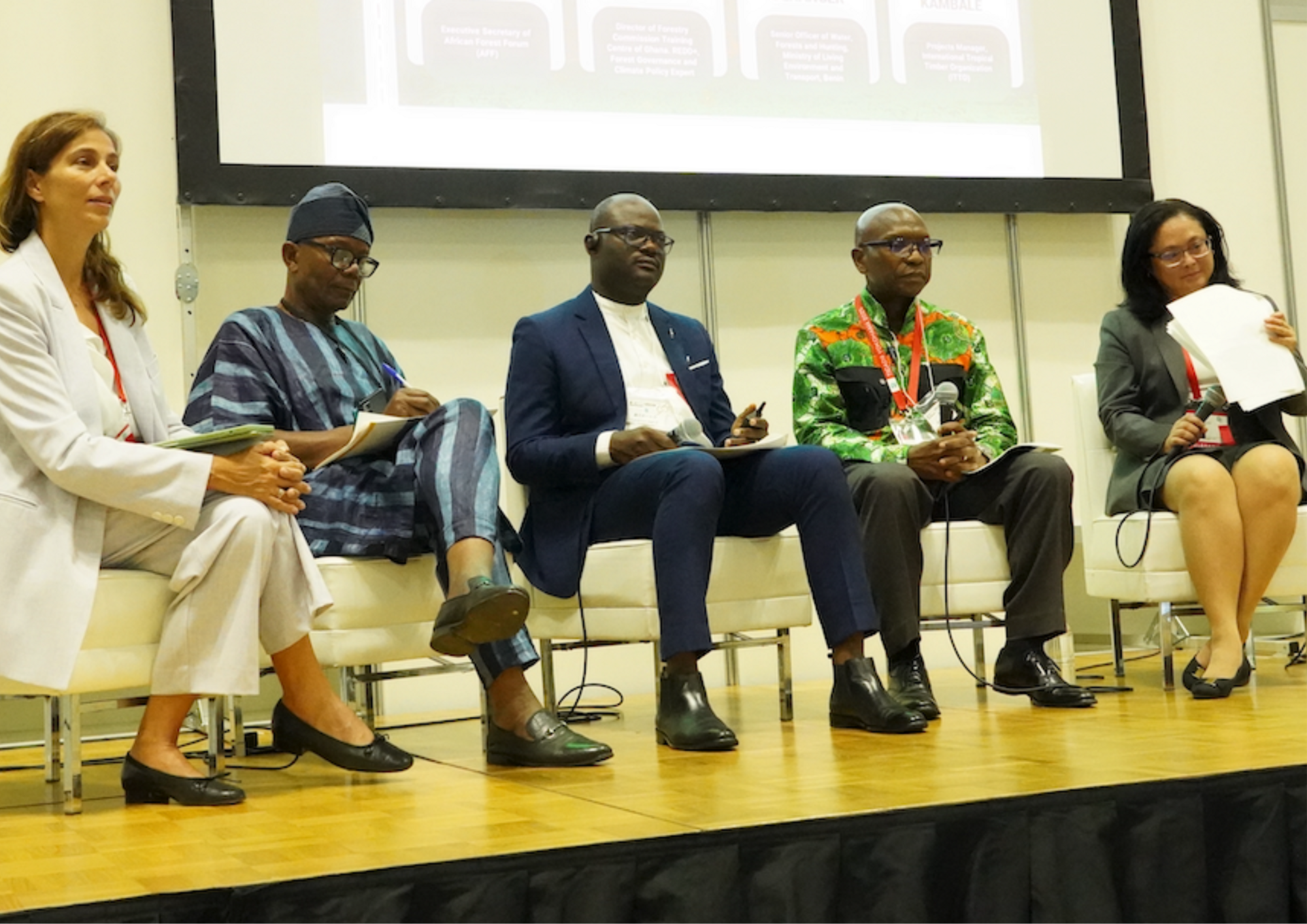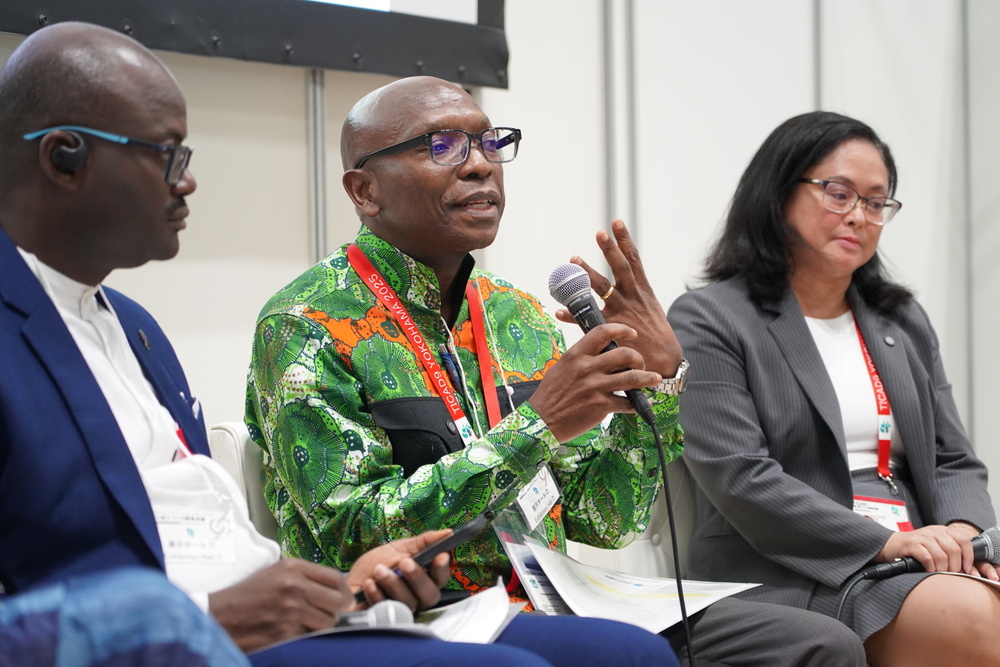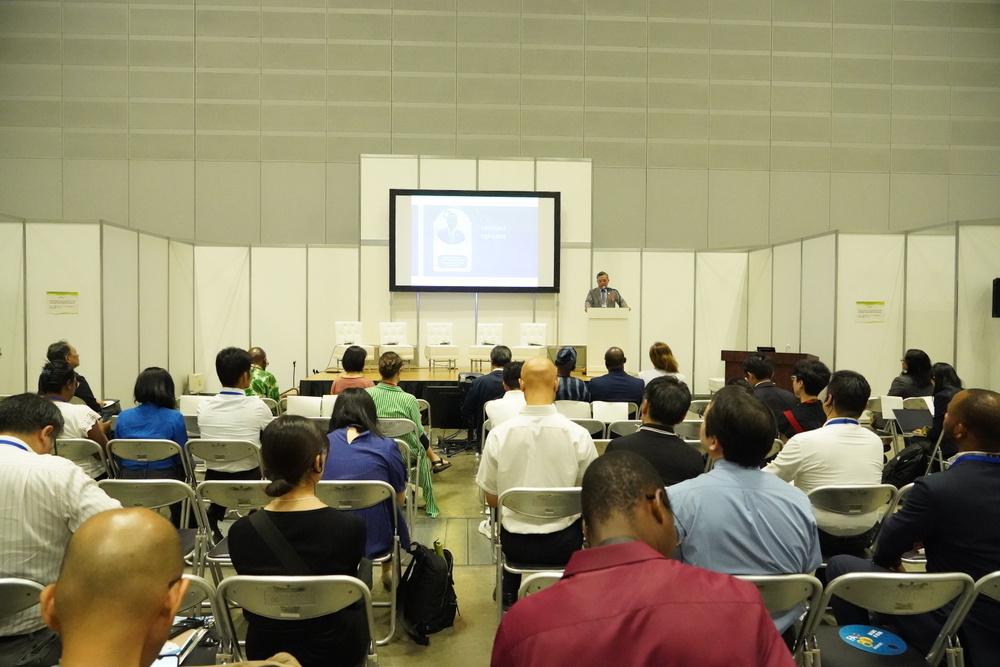Africa can lead on delivering nature-based solutions toward climate action, say experts at TICAD9 side event
28 August 2025, Yokohama

Speakers during the panel discussion ‘Realizing forest solutions - A future with reduced deforestation through sustainable agriculture’ onstage at the side event during the Ninth Tokyo Conference on African Development. © Paula Sarigumba/ITTO
Addressing global deforestation is central to achieving the Sustainable Development Goals (SDGs), including other targets related to climate action, poverty reduction, and food security.
At a side event held during the 9th Tokyo International Conference on African Development (TICAD9) on 22 August 2025, the Food and Agriculture Organization of the United Nations (FAO), the Forestry Agency of Japan, the UN-REDD/AFF Initiative, and the International Tropical Timber Organization (ITTO) convened experts to explore how cross-sectoral collaboration and co-created knowledge can accelerate progress in Africa.
Africa is home to some of the world’s richest and most biodiverse forest ecosystems, which provide vital services ranging from regulating rainfall and storing carbon to sustaining food systems and rural livelihoods. FAO’s Senior Forestry Officer Serena Fortuna noted that “94% of deforestation in Africa is driven by and linked to agriculture, and the solutions to really turn the tide of deforestation need to be found in agriculture”.
Forests are essential to Africa’s economies and communities, contributing around 22% of household income and employing more than 5 million people across the continent. They provide food, fuel, and building materials, while also creating opportunities for employment and sustainable livelihoods. Forests are central to achieving climate ambitions in Africa, and Ms. Fortuna stressed that half of Africa’s NDCs specifically mention REDD+ as a strategy.
Successes in addressing deforestation are emerging. ITTO Projects Manager Polycarpe Masupa Kambale shared Côte d’Ivoire’s experience in sustainable charcoal production by empowering women and youth in reforestation efforts to restore 4,500 hectares of the Gazetted Forest (GF) of Ahua. This ITTO-supported project further led to additional support from the World Bank’s Forest Investment Programme, which expanded and replicated the model in other areas in the country.

Speakers underscored the importance of viewing communities not as drivers of deforestation but as key partners in solutions. “You cannot have cost-effective solutions if you do not link them to the livelihoods of the people in touch with the forest resources,” said ITTO’s Kambale.
Roselyn Fosuah Adjei, Director of Forestry Commission Training Centre of Ghana, emphasized that community engagement is vital to halting deforestation. She showcased Ghana’s experience in developing its REDD+ strategy and the importance of investing in tools that inform the true valuation of its forests and results-based payments. Labode Popoola, Executive Secretary of African Forest Forum (AFF), also highlighted the critical role of youth in building a sustainable future.
Benin’s experience with the FAO-developed Solutions-Tree, a decision-support tool that helps governments identify, prioritize, and implement cross-sectoral policies, illustrates how connecting drivers of deforestation with systemic solutions can yield progress. “We do not look at deforestation as an isolated sectoral problem, but rather a systemic challenge that requires an extended and collective approach”, said Mr Awessou Kohomlan Beranger, Benin’s Senior Officer of Water, Forests and Hunting.

Participants agreed that long-term success depends on trust, shared learning, and strong partnerships between governments, international organizations, communities, and the private sector. Achieving this will require sustained financing, market incentives for sustainable production, and private-sector commitments to decouple agricultural growth from deforestation.
Jennifer Conje, ITTO’s Director of Forest Management, served as a moderator of the side event and inquired about opportunities to scale up solutions at CoP30 to address deforestation across Africa. Experts called for increasing finance, markets, and partnerships. “African countries are now ready to be a leader in forest-climate action,” said Ms Adjei. With the right support, collaboration, and investment, African countries can demonstrate that it is possible to keep forests standing while securing food systems and livelihoods for generations to come.